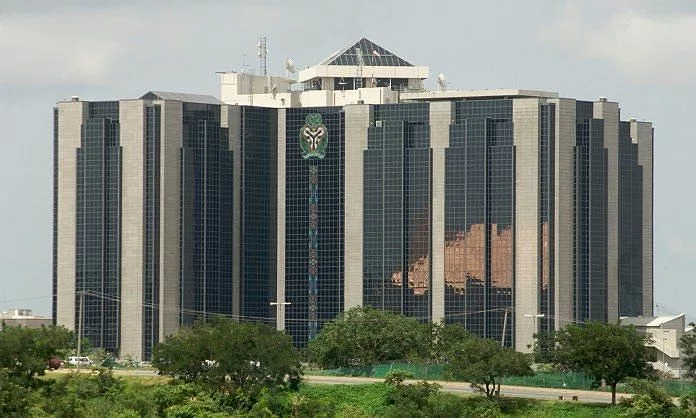Over the past few weeks Nigerian bank customers have found themselves in a state of frustration, grappling with a wave of disruptions caused by the banking sector’s digital overhaul. Many customers had been stranded and left in limbo as they could not access their funds as at when needed due to the disruptions caused by the upgrade of banking software of their various banks.
The ambitious efforts by financial institutions to upgrade core banking systems, intended to modernise infrastructure and boost efficiency, have instead left many customers struggling to access essential services.
From Sterling Bank to Guaranty Trust Bank (GTB) and Zenith Bank, millions of customers have experienced delays, transaction failures, missing funds, unsolicited transfers and reversals as well as complete service outages. Social media channels are awash with complaints from customers unable to log into apps, make payments, or transfer funds. The pain is palpable, but is there a long-term gain?
Many of the major banks in the country are undergoing a massive digital transformation, driven by the increasing demand for efficient, secure, and fast banking services. Electronic payments in the country surged by 84.37 per cent in the first seven months of 2024, reaching N572.63 trillion. This exponential growth, spurred by the Central Bank of Nigeria’s (CBN) push towards a cashless economy, has exposed significant gaps in banking infrastructure.
Banks have relied on foreign companies for their core banking platforms, spending millions of dollars annually on maintenance. However, this dependency has added pressure on the country’s balance of trade, prompting a shift towards indigenous solutions. One such example is Sterling Bank’s migration from Switzerland-based Temenos T24 to a local platform, SeaBaaS, which promises to reduce costs and enhance financial inclusion.
While these upgrades aim to improve long-term efficiency and security, the transition has not been smooth. Sterling Bank’s upgrade, which lasted from August to September 2024, left over three million customers unable to access banking services. Other banks, such as Zenith and First Bank, faced similar setbacks, with customers unable to transact for days due to system outages.
The widespread customer frustration is not without merit. Many banks failed to provide adequate notice before embarking on their system upgrades, leaving customers stranded. In an era where digital banking is essential, disruptions can erode trust in the institutions that hold people’s financial lifelines.
As one customer lamented during Zenith Bank’s October 1 outage, “I couldn’t make any payments for 72 hours—imagine being stuck in an emergency situation with no access to your funds.”
GTB, which announced its upgrade to the Finacle suite, acknowledged that it would cause temporary disruptions but aimed to enhance security and efficiency in the long term. However, the cost of these disruptions to customers, who rely on digital services for daily transactions, cannot be overlooked.
Most branches of GTB had remained closed on Monday October 14, 2024 as the upgrade disruption which was meant to last only for about 24 hours extended beyond the weekend, leaving customers stranded and frustrated.
A question that has arisen is why so many Nigerian banks are upgrading simultaneously. Some analysts have suggested it could be a coordinated market action, as seen in other global banking sectors. What began as a routine upgrade at Sterling Bank has rapidly transformed into an industry-wide effort, with banks vying to keep up with global trends and meet the demands of a digital-first economy.
Another critical driver is cybersecurity. Nigerian banks lost a staggering N59.33 billion to fraud between 2019 and 2023, with cyberattacks becoming increasingly sophisticated. Upgrading banking infrastructure is vital to protect customer data and funds in an era where digital threats loom large.
The financial sector’s investment in technology is also unprecedented. Five major banks—Zenith Bank, Access Bank, Guaranty Trust Bank, Wema Bank, and United Bank for Africa—have collectively invested over N178.77 billion in IT infrastructure in the first half of 2024 alone, a 203 per cent increase from the same period in 2023. This surge in investment reflects the urgent need for robust systems to handle the growing demand for digital transactions and the impending transition to a cashless economy.
Despite the short-term pain, these upgrades are necessary for long-term stability and growth. Nigeria’s banking sector, while fraught with current challenges, is positioning itself for the future. The shift towards locally developed solutions, such as SeaBaaS, signals a commitment to reducing dependency on foreign technology and fostering innovation within Nigeria.
For customers, however, the immediate concern is access and trust. Banks must find a way to communicate more transparently about system changes, providing clear timelines and alternatives during outages. Post-migration testing, staff training, and customer service enhancements will be key to restoring faith in the sector.
The digital transformation in Nigeria’s banking sector reflects a global trend. The challenges it faces now—while significant—are part of the growing pains in becoming a more resilient, secure, and efficient system. While customers may currently feel like they’re bearing the brunt, the hope is that these upgrades will lead to a future where digital banking in Nigeria is seamless, secure, and reliable.





